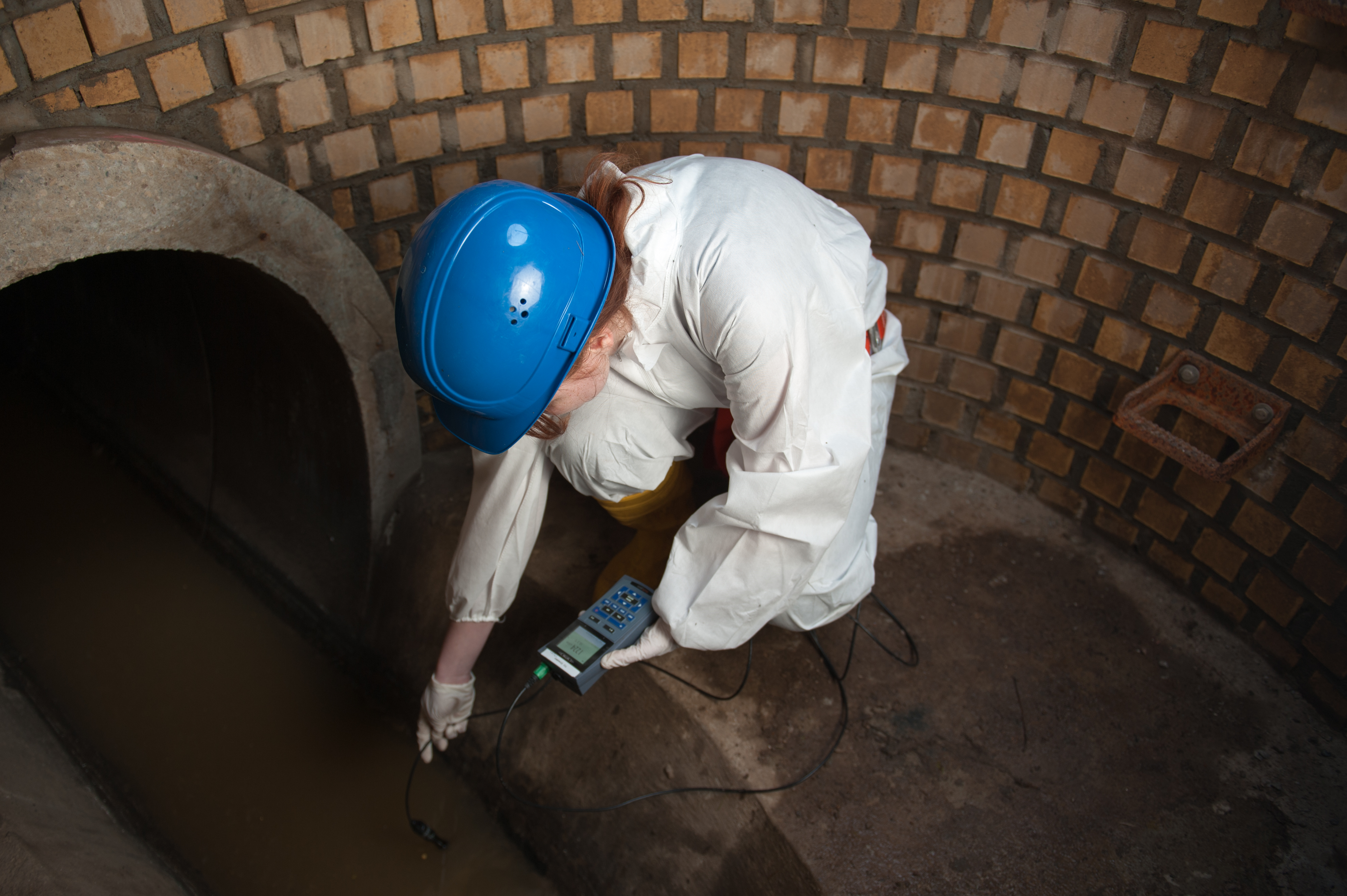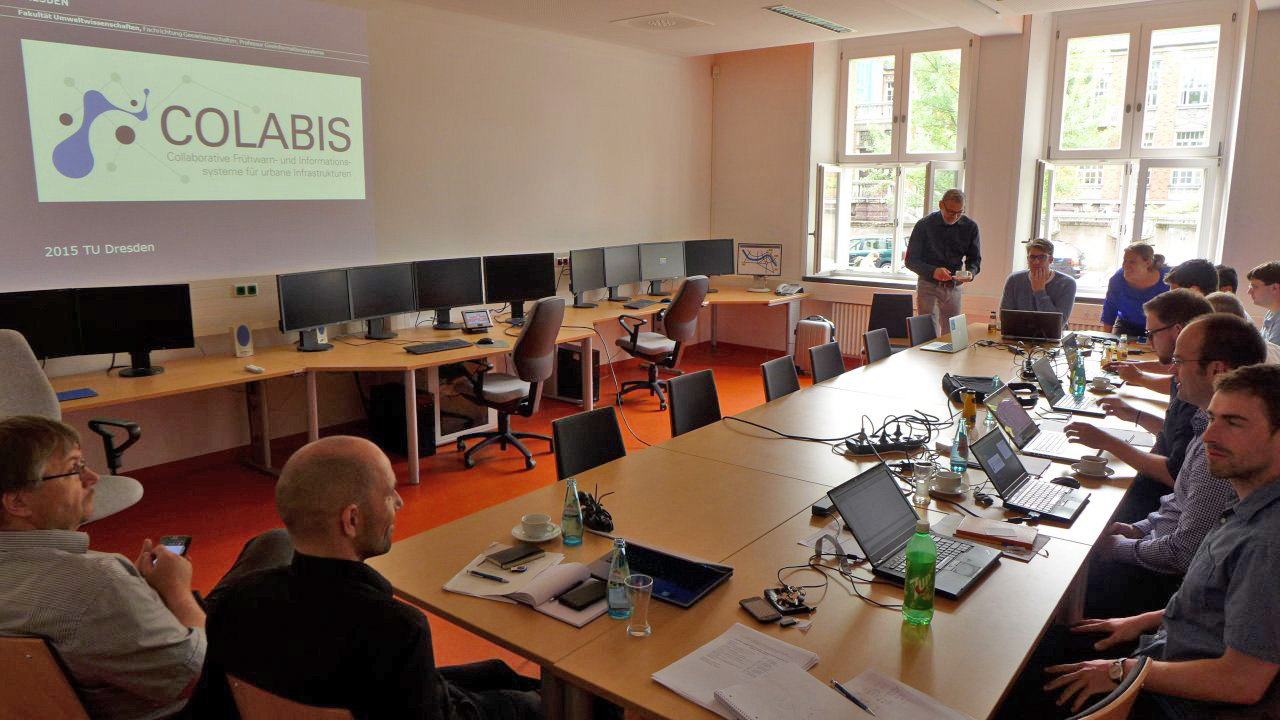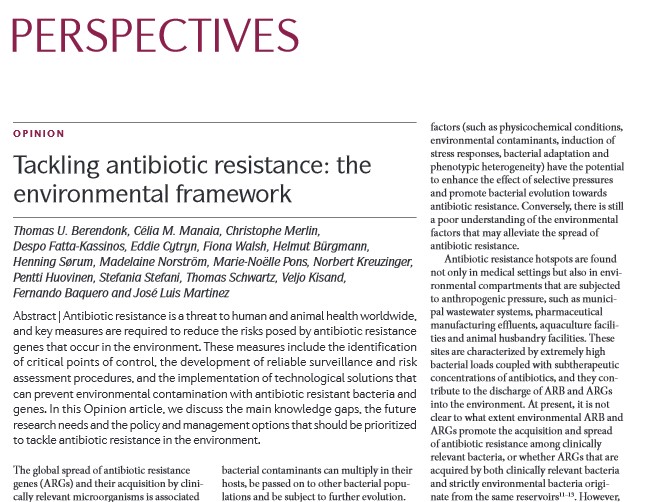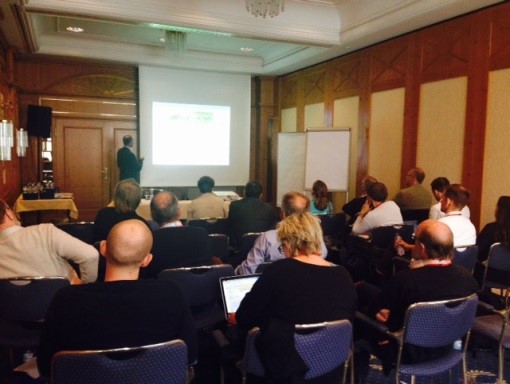Newsletter 08/2015
Research
Implementation and first results of the Urban Observatory Dresden
 © Professur für Siedlungswasserwirtschaft, TUD
The extension and operation of the Urban Observatory in Dresden, which has been financed in the framework of the Helmholtz Water Network, will be further funded until the end of 2016. In close cooperation with UFZ scientists, researchers of the TU Dresden Chair of Urban Water Management investigate transport and transformation processes of ecologically relevant waste and rain water constituents in urban drainage systems and watercourses. So far three mobile and energy self-sufficient stations continuously are monitoring important water quality parameters in the sewer system. The Urban Observatory will now be complemented by two additional monitoring platforms recording the load of the river Lockwitzbach prior to the urban impact as well as downstream of the relevant urban discharge points. First results have been obtained regarding the validation of on-line analytical equipment, the characteristics of sewer systems promoting first flush phenomena and the associated antibiotic loads, as well as the relevance of fine particle fractions for transport of micropollutants.
© Professur für Siedlungswasserwirtschaft, TUD
The extension and operation of the Urban Observatory in Dresden, which has been financed in the framework of the Helmholtz Water Network, will be further funded until the end of 2016. In close cooperation with UFZ scientists, researchers of the TU Dresden Chair of Urban Water Management investigate transport and transformation processes of ecologically relevant waste and rain water constituents in urban drainage systems and watercourses. So far three mobile and energy self-sufficient stations continuously are monitoring important water quality parameters in the sewer system. The Urban Observatory will now be complemented by two additional monitoring platforms recording the load of the river Lockwitzbach prior to the urban impact as well as downstream of the relevant urban discharge points. First results have been obtained regarding the validation of on-line analytical equipment, the characteristics of sewer systems promoting first flush phenomena and the associated antibiotic loads, as well as the relevance of fine particle fractions for transport of micropollutants.
The Urban Observatory is particularly well integrated into current CAWR projects: The infrastructure and generated data are planned to be utilized in the framework of BOOT-Monitoring, Urban Catchments (see Newsletter 05/2015) und COLABIS (see current newsletter) e.g. to test analytical equipment and to run simulations. In addition, the Urban Observatory is part of the UFZ TERENO activities and contributes to data generation for the assessment of long-term impacts of global change. More information: bjoern.helm@tu.dresden.de
3rd project phase „IWRM in Central Asia: Model region Mongolia (MoMo)“
Foto: Daniel Karthe, UFZ
The IWRM MoMo project which is funded by the BMBF in the framework of the funding priority "Sustainable Water Management" (NaWaM) now starts into the 3rd project phase (Coordination: UFZ). For the model region Mongolia, it puts the CAWR mission "Safe water for the people and the environment" into practice in an exemplary manner. The most important achievements made during the finalized 1st and 2nd project phases include the development of a research-based IWRM concept and an operational monitoring system, extensive Capacity Development as well as the design and pilot-scale testing of urban water management measures. In the framework of MoMo III, the developed IWRM strategy and the monitoring system will be implemented in Mongolia and the tested technologies will be transferred to the full scale. In the frame of the project, the CAWR also aims at advancing its cooperation with the Competence Center Water of the GIZ. More information here
COLABIS project start
 Foto: Matthias Körner, TUD
The Kick-off Meeting of the BMBF funded project COLABIS (Collaborative early warning and information systems for urban infrastructures) took place on July 15th in Dresden (Coordination: TU Dresden). The focus of the project lies on the design and implementation of a web-based platform enabling the development of urban monitoring and early warning systems to prevent hazardous situations. By means of this information system, the scientists want to combine and merge environmental, historical, official and crowd sourcing data as well as simulation results. The platform will be tested using the example of natural hazards occurring in the urban space, such as the discharge of contaminated rain and waste water streams into receiving waters after heavy rain events. Important interfaces of CAWR with COLABIS ensue mainly in the Competence Fields Water Quality, Urban Water and Data Collection and Information Processing. More information here
Foto: Matthias Körner, TUD
The Kick-off Meeting of the BMBF funded project COLABIS (Collaborative early warning and information systems for urban infrastructures) took place on July 15th in Dresden (Coordination: TU Dresden). The focus of the project lies on the design and implementation of a web-based platform enabling the development of urban monitoring and early warning systems to prevent hazardous situations. By means of this information system, the scientists want to combine and merge environmental, historical, official and crowd sourcing data as well as simulation results. The platform will be tested using the example of natural hazards occurring in the urban space, such as the discharge of contaminated rain and waste water streams into receiving waters after heavy rain events. Important interfaces of CAWR with COLABIS ensue mainly in the Competence Fields Water Quality, Urban Water and Data Collection and Information Processing. More information here
Article published on antibiotic resistance in the environment
 © Nature Reviews Microbiology
Scientists of a European COST Action (TD0803 – DARE) have published an opinion article regarding antibiotic resistance development in the environment entitled „Tackling antibiotic resistance: the environmental framework“ in the prestigious journal „Nature Reviews Microbiology“ (first author T.U. Berendonk, TU Dresden/CAWR). Therein they discuss the main gaps of knowledge and the future research needs in this field, which moves more and more into the focus of both scientists and the public. To control input of antibiotic resistances into the environment as widely as possible, priority genes and organisms for future research tasks are identified, and the design and implementation of reliable monitoring and risk assessment procedures as well as the realization of technical solutions are proposed. More information here
© Nature Reviews Microbiology
Scientists of a European COST Action (TD0803 – DARE) have published an opinion article regarding antibiotic resistance development in the environment entitled „Tackling antibiotic resistance: the environmental framework“ in the prestigious journal „Nature Reviews Microbiology“ (first author T.U. Berendonk, TU Dresden/CAWR). Therein they discuss the main gaps of knowledge and the future research needs in this field, which moves more and more into the focus of both scientists and the public. To control input of antibiotic resistances into the environment as widely as possible, priority genes and organisms for future research tasks are identified, and the design and implementation of reliable monitoring and risk assessment procedures as well as the realization of technical solutions are proposed. More information here
Events
CAWR training at GIZ staff retreat in Bad Lauterberg
 Foto: Greta Jäckel, UFZ
The CAWR organized a training session with the topic "Learning from water research" on July 10th at the GIZ staff retreat of the department Water Energy Transport. During this event, GIZ staff had the opportunity to exchange ideas and opinions on current CAWR research topics with scientists and partners from practice. Naturally, the spotlight was on projects of relevance for international cooperation, such as integrated water resources management and decentralized waste water management in Mongolia (MoMo) and Jordan (SMART). Contributions on irrigation strategies and Water Accounting were discussed as well. Through the joint organization of the training session the cooperation between CAWR and GIZ was further strengthened. The next milestone of the cooperation will be a workshop on "Decentralized Waste Water Management" in November 2015.
Foto: Greta Jäckel, UFZ
The CAWR organized a training session with the topic "Learning from water research" on July 10th at the GIZ staff retreat of the department Water Energy Transport. During this event, GIZ staff had the opportunity to exchange ideas and opinions on current CAWR research topics with scientists and partners from practice. Naturally, the spotlight was on projects of relevance for international cooperation, such as integrated water resources management and decentralized waste water management in Mongolia (MoMo) and Jordan (SMART). Contributions on irrigation strategies and Water Accounting were discussed as well. Through the joint organization of the training session the cooperation between CAWR and GIZ was further strengthened. The next milestone of the cooperation will be a workshop on "Decentralized Waste Water Management" in November 2015.
Symposium and workshop on complex networks in Seoul
The university of Korea hosted the “International Symposium on Water, Feedbacks and Complexity” in June/July 2015. During this event in Seoul, the focus was on dynamics and resilience as well as modelling of coupled complex systems such as river networks and water infrastructures. Following the symposium, a two-week synthesis workshop on the dynamics of structure and functions of complex networks was held. Postdocs and graduate students had the opportunity to thoroughly deal with different characteristics of complex networks and develop common scientific questions. In the framework of the workshop, the CAWR substantiated its cooperation with the Purdue University and University of Florida in the fields of education, research and transfer. The partners want to sign a Memorandum of Understanding regarding their long-term strategic cooperation at the end of September 2015 in Leipzig.
Miscellaneous
New CAWR scientific coordinator at TU Dresden
.jpg) The CAWR team was now reinforced by a new scientific coordinator. Dr. Mareike Braeckevelt took up her position as a staff member of the Faculty of Environmental Sciences at TU Dresden in the beginning of July. As of now, she heads the CAWR Coordination Office together with Greta Jäckel of UFZ. She is an environmental chemist and has mainly done research in the field of near-natural groundwater and waste water treatment during her scientific career. Now she is committed to enhancing networking, communication and information exchange between TU Dresden, UFZ and external partners, as well as to specifically advancing the acquisition of joint collaborative research projects.
The CAWR team was now reinforced by a new scientific coordinator. Dr. Mareike Braeckevelt took up her position as a staff member of the Faculty of Environmental Sciences at TU Dresden in the beginning of July. As of now, she heads the CAWR Coordination Office together with Greta Jäckel of UFZ. She is an environmental chemist and has mainly done research in the field of near-natural groundwater and waste water treatment during her scientific career. Now she is committed to enhancing networking, communication and information exchange between TU Dresden, UFZ and external partners, as well as to specifically advancing the acquisition of joint collaborative research projects.

